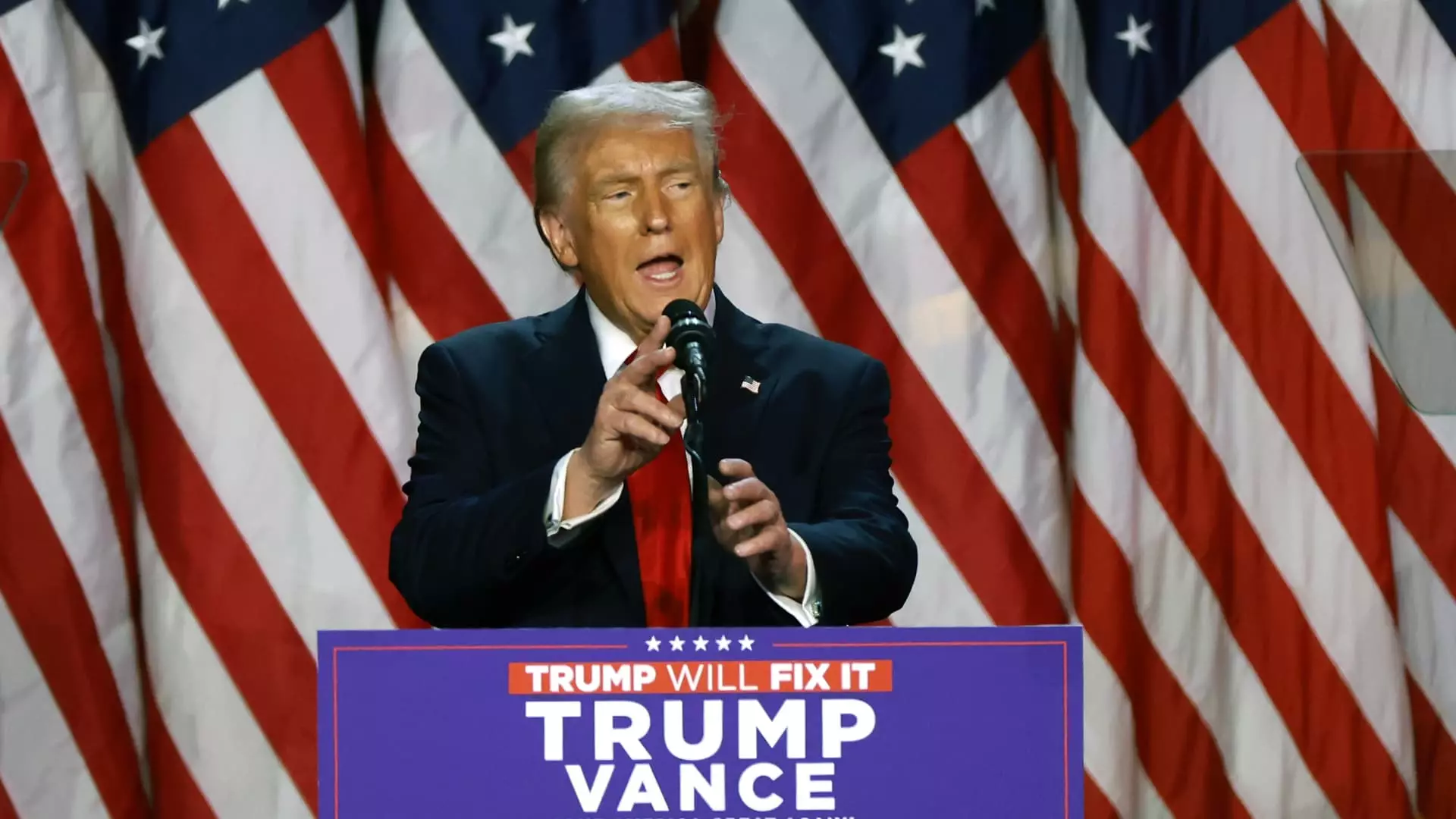The recent election of President Donald Trump has triggered seismic shifts in the financial markets, with stocks climbing to unprecedented heights just days after his victory. Coupled with an unexpected interest rate cut from the Federal Reserve, indices like the Dow Jones Industrial Average, S&P 500, and Nasdaq achieved their most successful week in a year. While these developments paint a picture of economic positivity on Wall Street, they starkly contrast with the sentiments of the average American regarding their personal finances. This divergence, termed “vibecession,” underscores a pressing issue: the disconnect between market performance and personal financial wellbeing.
Despite buoyant stock market performance, many financial analysts caution against allowing such external indicators to dictate personal financial strategies. Americans continue to feel the pinch of fluctuating economic conditions, and the overwhelming sense of apprehension should not be overlooked. Certified financial planner Rianka Dorsainvil emphasizes the importance of maintaining focus on financial strategies that individuals can control, regardless of the national political climate. As she notes, personal finance requires a foundational approach that is adaptable only in response to one’s own circumstances and aspirations.
The term “vibecession” succinctly captures the emotional and financial dissonance many Americans experience. Stock market exuberance does not correlate with job uncertainty, rising costs of living, or stagnant wages that many households face. It is crucial to transition from a mindset of external dependence to one where individuals take proactive steps toward financial security.
Taking Charge of Your Finances
In light of the disconnect between market performance and personal financial reality, experts recommend a proactive approach to managing personal finances. Here are some essential strategies that can help individuals regain control:
1. **Establish a Robust Emergency Fund**: A fundamental component of financial security is an emergency fund, and experts suggest aiming for three to six months’ worth of living expenses. Placing this fund in a high-yield savings account not only offers peace of mind but also safeguards against unforeseen circumstances that could disrupt income stability.
2. **Maximize Retirement Savings**: The importance of tax-advantaged savings accounts cannot be overstated. 401(k) plans, particularly those with employer matching, provide significant benefits to savers. Dorsainvil highlights the need to review one’s retirement options thoughtfully, including the differences between traditional and Roth IRAs, to align savings strategies with long-term goals.
3. **Leverage Health Savings Accounts (HSAs)**: Beyond traditional savings accounts, health savings accounts offer a triple tax advantage—contributions are tax-deductible, withdrawals for qualified medical expenses are tax-free, and the funds grow on a tax-deferred basis. As financial advisor Lee Baker points out, HSAs should be viewed as powerful investment vehicles that can turbocharge savings and minimize tax liabilities.
4. **Address and Eliminate Debt**: High credit card debt can undermine financial health, especially in a climate of rising interest rates. Experts recommend temporarily halting credit card usage while collaborating with nonprofit credit counselors to develop a repayment strategy. Reducing debt not only enhances individual financial flexibility but also prepares one to weather potential economic shifts.
5. **Recover Unclaimed Financial Assets**: A lesser-known strategy for improving personal finances is to search for unclaimed funds. Resources like the National Association of State Treasurers’ website can help individuals identify lost or forgotten assets, offering an easy way to boost financial reserves.
It is imperative not to become overly reactive to short-term market changes or sensational headlines from the media. The key lies in establishing robust financial practices that act as a buffer against the fluctuations of the economy. As Rianka Dorsainvil puts it, a strong financial foundation allows individuals to navigate any economic landscape, irrespective of political influences.
The turbulence of the financial world post-election serves as a reminder that personal finance should take precedence over external fluctuations. By honing in on actionable strategies that empower individuals to take control of their financial destinies, one can transcend the dilemma posed by a vibecession. Investing in personal financial education, establishing emergency funds, re-evaluating debt, and utilizing available resources can provide a pathway toward financial resilience, regardless of which party holds power in Washington, D.C.

